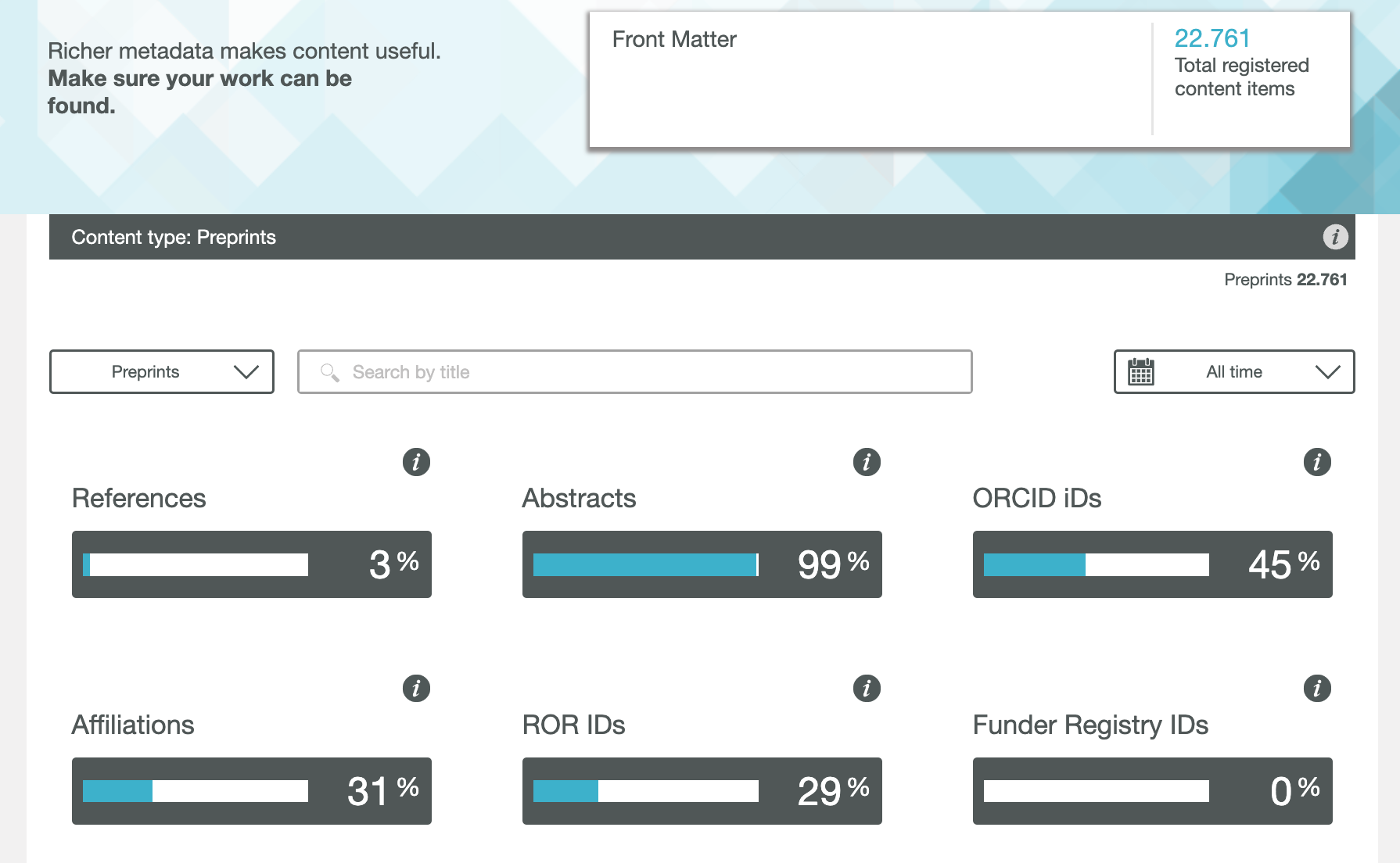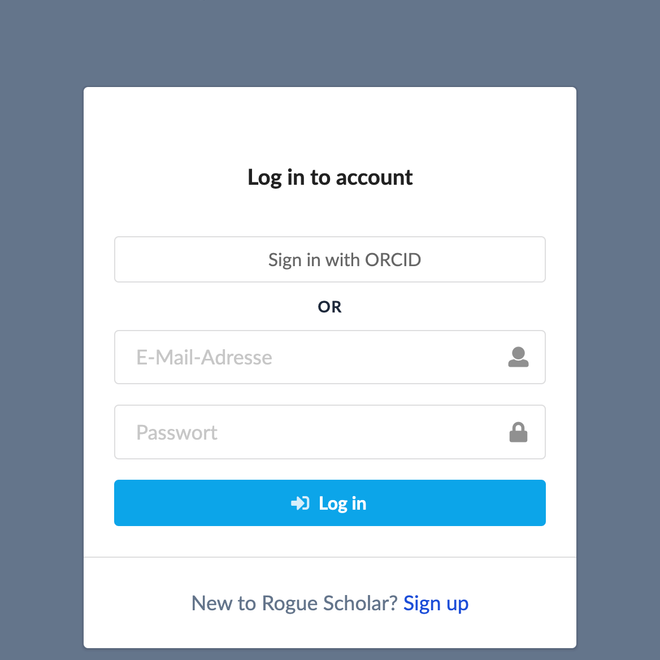Starting this week, users of the science blog archive Rogue Scholar can sign in into the service using their ORCID credentials. This is in addition to the local Rogue Scholar accounts that continue to be available, and that can be linked with the ORCID account:

This functionality is part of the underlying InvenioRDM repository platform and requires only registration of Rogue Scholar with the ORCID authentication service and a small configuration change. One more example how Rogue Scholar can benefit from community work on open source scholarly infrastructure. The previous Rogue Scholar system used Supabase Auth, which is a nice straightforward system built on top of Postgres, but offered no easy path to implement ORCID authentication, even though both ORCID and Supabase use the industry standard OpenID Connect (OIDC).
The InvenioRDM implementation addresses a major shortcoming of the ORCID OIDC implementation: email addresses are not routinely shared. They are essential to stay in contact with InvenioRDM account owners, so InvenioRDM implemented a workaround that collects an email address upon registration.
What can Rogue Scholar users do with personal accounts, and with linking these accounts to their ORCID identity? At this point not much. A big part of the InvenioRDM functionality is about uploading and registering scholarly content and metadata. Rogue Scholar instead collects this information automatically from participating science blogs via their RSS feeds.
The only functionality for personal accounts currently in place is the initial management of blogs by their owners via their respective community, e.g. https://rogue-scholar.org/communities/front_matter for this blog. The challenge for Rogue Scholar is that it wants to collect as much information as possible from the blog itself (e.g. name, description, logo), and configuration changes in Rogue Scholar have to be handled carefully to not create conflicting versions of content and/or metadata.
About 45% of all Rogue Scholar blog posts have at least one ORCID ID associated with them, and again this process is almost fully automated. The workflow of collecting and storing ORCID IDs of blog authors can be streamlined with the new ORCID integration, in particular for some of the edge cases (e.g. where authors want their ORCID ID associated with some but not all of their blog posts).

About 29% of all Rogue Scholar blog posts have at least one ROR (Research Organization Registry) ID associated with them, and this is more complicated than linking the author identifier, as affiliations can change over time or happen in parallel, making the affiliation a property of the author – publication relation rather than a stable property of the author.
Rogue Scholar is in a unique position to link scholarly works and ORCID (and ROR) as this linking is done before registering (or updating) content with Crossref or DataCite. Which has important advantages over doing this linking after DOI registration with what is called Search and Link. Search and Link is more work for researchers and creates ORCID claims in the ORCID system that the publisher and DOI registration agency (and all the services using their metadata) don't necessarily know about.
Many of the challenges of integrating ORCID (and ROR) with scholarly outputs are not unique to scholarly blog posts and I will coordinate the work with the InvenioRDM and broader scholarly infrastructure communities.
Interesting work ahead for Rogue Scholar in the coming months, so stay tuned (e.g. follow this blog via RSS feed or newsletter). Or reach out with feedback or suggestions.


